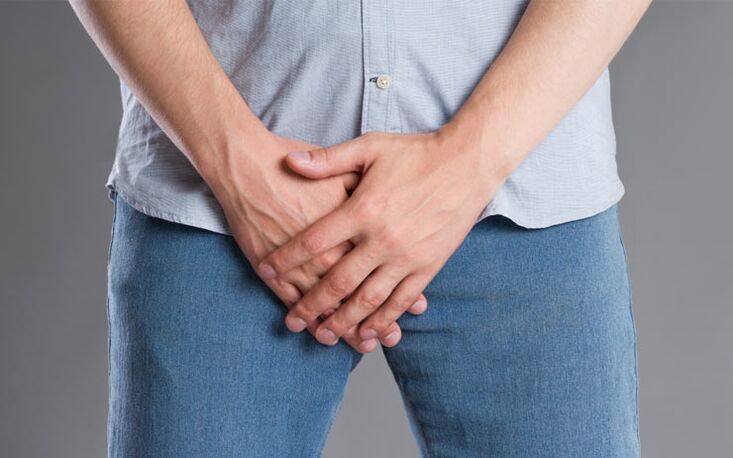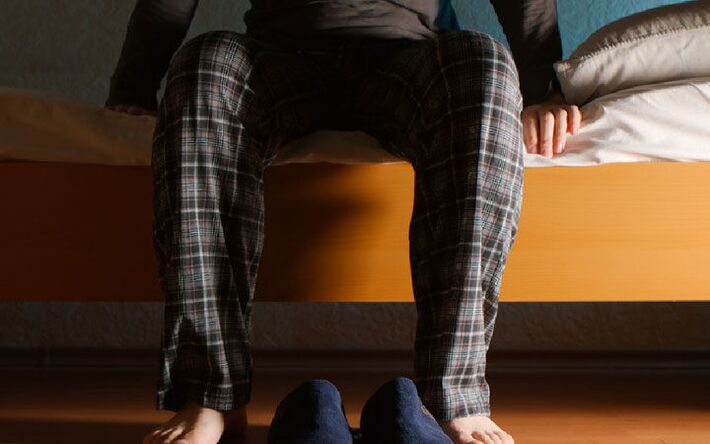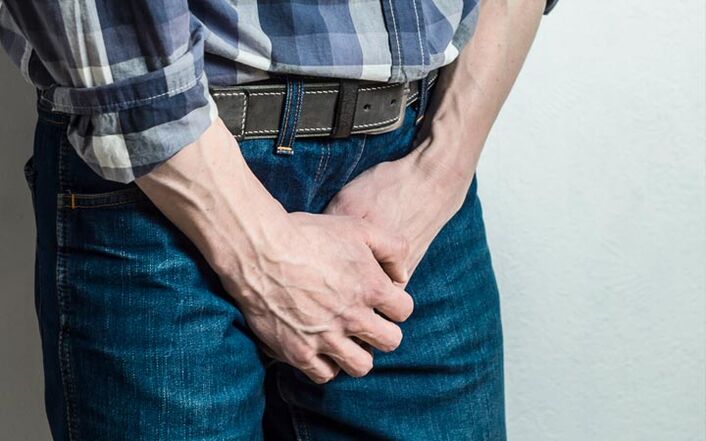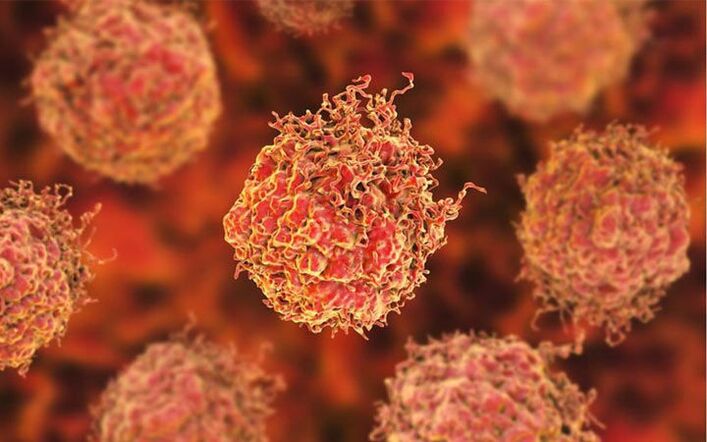
Prostatitis is a purely male disease of the prostate gland of an inflammatory nature. Most men know about the presence of such an organ as the prostate gland, but not everyone understands what role it plays in their body. The prostate iron is a small but important organ in the male reproductive system. It is located under the bladder and surroundings the upper part of the urethra. The prostate gland performs several functions.
Secretory functionIt is the main one for the prostate gland. It produces a secret that is two -thirds of the liquid, which is ejaculated with orgasm and ensures the motor activity of spermatozoa.
Motor functionIt consists in the ability of the prostate to keep urine due to smooth muscle fibers. And during ejaculation, it prevents the mixing of sperm and urine.
Barrier functionIt consists in preventing pathogenic microorganisms in penetration from the lower parts of the urethra into the bladder and kidney.
Prostate disease
The prostate gland, like any other organ, is vulnerable. Prostate disease is any medical problem that is found in the prostate gland.
These problems include:
- prostatitis;
- benign hyperplasia of the prostate gland (DHCH), also called the prostate adenoma;
- stones in the prostate;
- Prostate cancer.
Types of prostatitis
Prostatitis is inflammation of the prostate gland caused by infection or other causes. This is the most common reason for the premature extension of sexual functions. Treatment of prostatitis is determined by its type. There are 4 main types of this disease. Each of them has its own set of symbols and causes.
- Acute bacterial prostatitis.
- Chronic bacterial prostatitis.
- Chronic non-bacterial prostatitis.
- Asymptomatic chronic prostatitis.
Acute bacterial prostatitis
A relatively rare prostatitis.This type of prostatitis is always associated with bacterial attacks in the prostate tissue.It affects men aged 35 to 50.Acute prostatitis is characterized by a sudden onset, with obvious symptoms in the acute course, which leads to the rapid deterioration of the patient's condition.
Acute bacterial prostatitis is easier to identify than chronic diseases due to its monotonous clinical manifestations.The reason is the penetration of pathogenic organisms into the prostate.These are the same bacteria that cause urinary tract infections and sexually transmitted diseases.These include the following pathogens:
- E. coli (E. coli) is always present on the external genitals and is, in most cases, an infected pathogen;
- Chlamydia and sexually transmitted mycoplasma;
- Klebsella and Pseudomonas rods;
- Enterococcus, Enterococcus;
- Gonococci.
Causes of acute bacterial prostatitis
In the prostate, these pathogens fall from the urethra through the outlet tube or other adjacent organs: the bladder, kidney, rectum.Most of these microorganisms are conditionally pathogenic, that is, they live on a person's skin and mucous membranes and are not dangerous to him.
A healthy person has enough immunity to prevent microbial species.Even if an infection enters the prostate, it may not attract people's attention.In order for infection to prove itself in the form of an outrageous factor, SO-induced triggers are needed.Right now:
- The immunity declines due to sedentary lifestyle, abuse of bad habits, and long-term intake of antibiotics;
- Low temperature;
- Many hours of sedentary work;
- Sexual relationship instability, the presence of chronic inflammatory diseases in partners (bacterial vaginosis, chronic female fear layer);
- prolonged sexual desire or excessive sexual activity;
- Chronic focus of infection;
- metastatic transmission and urological infection;
- Urethral surgery;
- Continuous stress, overwork, lack of sleep;
- Violation of chair (constipation, diarrhea).
symptom

The acute type of prostatitis is determined by the following signs:
- Chills, fevers, and generally discomfort;
- In the genital area, rectum, and sometimes pain throughout the body.
- Urinate frequently, especially at night;
- painful urination, weak streams, burning, spicy urine smell;
- Blood in urine or sperm;
- Painful ejaculation;
Treatment of acute bacterial prostatitis
Urinary tract infection is confirmed by white blood cells and bacteria in the urine.
The treatment process for acute bacterial prostatitis involves:
- Fixed regime;
- diet;
- Total rejection of alcohol and tobacco;
- Broad-spectrum antibiotics (ampicillin, cephalosporin, macrolide);
- painkillers and anti-inflammatory drugs (intravenous or intramuscular);
- If necessary, decompose the brine.
The duration of treatment is two to four weeks.
complication
The acute form lasts no more than 1-2 months.If there is no treatment during this period, the disease will become chronic.The most common complication of acute prostatitis is flow to a chronic form.
Development of prostate abscess - Focal purulent inflammation with temperature elevated to 40°C.
Chronic bacterial prostatitis
Usually, chronic prostatitis has no obvious characteristics.Unlike acute forms, acute forms are common weaknesses, discomfort, temperature and pain in the inguinal area, chronic bacterial prostatitis, fuzzy clinical conditions, mild.If the condition is not good in an acute state, it actually forces the patient to contact the urologist, then everything is different in the chronic form.
The intensification of prostatitis is replaced by periods of remission, sometimes long, and visits to doctors are postponed indefinitely.Often, men think the signs of prostatitis are an age-related necessity, not a reason to see a doctor.Without any obstacles in his path, the disease "flowered."
Symptoms of chronic bacterial prostatitis
- Feel the distant urination of the thread.A weak stream occurs only after a few attempts.
- The clearance of the bladder is incomplete.
- In the lower abdomen, back, crot bone pulling pain.
- Decreasing sexual desire.
- Sleep, attention is damaged, and apathy can develop, headaches and ear bells may appear.
- Increased sweating is one of the atypical symptoms of this disease you need to be aware of.

complication
If you are not fighting chronic prostatitis, you must deal with the more serious consequences of its poor treatment.Chronic prostatitis may have the following complications:
- Cystitis;
- Pyelonephritis;
- Therapeutic inflammation (inflammation of testicles and their attachments);
- Vesicles (inflammation of seed bubbles);
- Erectile dysfunction, infertility.
Diagnosis and treatment
Treatment of chronic prostatitis is prescribed according to laboratory tests.These include:
- General blood tests;
- Three urine test;
- Microbial examination of urine;
- Transrectal ultrasound of the prostate;
- Finger rectal examination;
- Microscopy and microbiological examination of prostate secretion;
- Microscopy of urethral smear to detect gonococcal.
Drugs for prostatitis in the pathogenic bacterial population and act on Gram-negative and Gram-positive bacteria.The therapeutic complex includes not only drug treatment, but also physical therapy.Treatment of prostatitis provides:
- Antibacterial treatment;
- Anti-inflammatory therapy;
- Immunomodulation therapy;
- physiotherapy;
- laser therapy;
- Physical Therapy Sports;
- Ozone therapy.
The duration of treatment is 8 to 12 weeks.
Chronic non-bacterial prostatitis
This type is also called pelvic pain syndrome.It is characterized by spasms in the pelvic floor muscles.There is a version of his neurology native to it.
Symptoms of non-bacterial prostatitis
- Pain in the pelvis and lower back during urination;
- Lomota in the joints and the entire body;
- Discomfort and itching during sex;
- Gastrointestinal diseases.
Types of non-bacterial prostatitis
Chronic nonbacterial prostatitis has 2 forms: inflammatory and noninflammatory.
Increased concentration of white blood cell and increased red blood cell sedimentation indicate the inflammatory nature of the disease.
Non-inflammatory forms are more difficult to diagnose.After the patient complains about pelvic pain during sexual contact.
Causes of non-bacterial chronic prostatitis
- Imbalance, monotonous nutrition;
- A sedentary lifestyle;
- Irregular sex life;
- Genetic tendency;
- Penis trauma;
- Changes in the prostate spread.
In this type of prostatitis, a large number of inflammatory cells are detected in the secretion of the prostate, but no infection in the urogenital tract has been infected in the history of the disease.
Diagnosis and treatment
In order to diagnose a distinct type, the following instructions are required:
- Urine analysis;
- General blood tests;
- Urine seeds to identify microorganisms;
- Prostate ultrasound;
- CT and MRI;
- Bacterial smear.
Treatment of hypertrophic prostatitis
Antibiotics sometimes work even if there are no signs of bacteria in the test.Therefore, they are also often prescribed as the first stage of treatment for chronic nonbacterial prostatitis.The purpose of alpha blockers helps relax tissues of smooth muscles in the prostate and the neck of the bladder.
Nonsteroid anti-inflammatory drugs help relieve pain and fever.It can be a candle for prostatitis.
Regular prostate massages performed by doctors can help drain fluid from the inflamed prostate tube and reduce stress.
Asymptomatic chronic prostatitis
Rarely studied, asymptomatic, and therefore the most dangerous appearance.Often, you stumble upon it during an exam.
Symptoms based on research results
- Elevated PSA levels (prostate-specific antigen);
- White blood cells in urine.
Complications of asymptomatic prostatitis - adenomas and prostate cancer.

Select asymptomatic form of prostatitis medication based on the cause of the disease.In infection, the disease is treated with antibiotics or antiviral agents.If the cause of the disease is not in the bacteria, your doctor may be limited to prescriptions for ultrasound treatment or massage.
Treatment of prostatitis with folk therapy
It is necessary to treat prostatitis alone and comprehensively.
- Healing mixture.
To prepare the Miracle Mix, you will need:- Fresh cucumbers;
- Beetroot is a restaurant (red);
- carrot.
From these vegetables, it is necessary to squeeze the juice and mix equally.Drink 100 ml three times a day half an hour before meals.We recommend using candles in propolis at the same time as the intake of the mixture.Enter the rectum at night.
- Helix.
Buy spirulina powder in the pharmacy and add cranberry juice and mix well.Every 100 ml.Juice 2 grams powder.Drinking the mixture during the day.
The treatment process is 7 days, then rest for 3 days, and then repeat.To have a positive impact, 3-4 such courses are required. - A mixture of leaves and honey.
Grind the original tubers of the regular label with honey.Take 1 teaspoon of the final mixture every day (morning and evening). - A mixture of parsley and honey.
It is necessary to squeeze the parsley juice and mix in the same proportion as honey.Use 2 tablespoons of the mixture per day for 2 tablespoons.
Prevent prostatitis
Prevention is the ancient truth that the best treatment has established itself as best as possible in terms of prostatitis.After all, it is violated by the basic rules of a healthy lifestyle to promote prostatitis.Lack of sleep, nutritional imbalance, non-hygiene compliance, rejection of exercise, exercise activities, smoking, alcohol - this is the right way to inflammation of the prostatitis.To never encounter all the troubles of “rewarding” male prostatitis, the following precautions are sufficient:
- Don't abuse alcohol and give up smoking.The doctor said this is the main cause of blood stagnation in the pelvis.
- Gymnastics and physical exercise are useful, especially to strengthen the muscles in the pelvic region.Improved runs perfectly suited to prostate health and retains mature efficacy.
- Food should be made of products rich in vitamins, minerals, and fiber.Especially useful for zinc prostate.There are many in cedar nuts and sunflower seeds.It is best to give up fried and fatty foods.
- Drink a lot of pure water (2L);
- In the cold season, use warm linen;
- Check with the doctor once a year.
All of these views are simple, they oppose prostatitis - a sinister disease that masks old age, and can lead to dangerous consequences of life.























